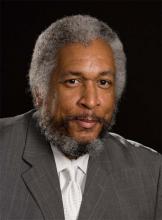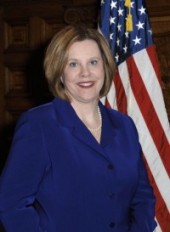The state agency that oversees the health care of almost 2.5 million Georgians has drawn sharp questioning over a budget proposal involving a small fraction of them.
The Department of Community Health’s $13 billion budget for fiscal year 2016 would eliminate health insurance coverage for 11,500 “non-certificated’’ school personnel, such as bus drivers and cafeteria workers.
DCH Commissioner Clyde Reese, speaking Tuesday to the joint House and Senate Appropriations Committee, cited a “fairly large deficit’’ that the state incurs for covering these school workers. He put the figure at $135 million in fiscal 2014.
“We think a lot of these people will get insurance in other ways,’’ Reese told Democratic Rep. Mary Margaret Oliver (D-Decatur), who questioned the coverage move. He added that some may qualify for subsidies in the health insurance exchange.
Reese projected an eventual fiscal 2017 deficit for the State Health Benefit Plan, which covers more than 630,000 state employees, teachers, other school personnel, retirees and dependents.
Other items of interest in the proposed Community Health budget include a total of $42.5 million in the midyear and fiscal 2016 Medicaid budgets to cover expensive new drugs for hepatitis C.
The agency spending plan also includes hiring eight more nurse surveyors to eliminate a backlog in nursing home inspections; $12 million for the startup of a care coordination program for the disabled population on Medicaid; and more money for new medical residency slots in primary care.
It also includes forming a task force to figure out how to compensate for the state’s hospitals eventually losing $390 million in federal funding for uncompensated care. These “disproportionate share’’ cuts come as a result of the Affordable Care Act. The law’s designers believed the reductions would be offset by Medicaid expansion covering more uninsured patients.
Georgia’s Republican leadership has declined to expand Medicaid, saying the projected costs to the state are too high.
Missing from the Community Health budget is any funding to continue the pay increase for primary care physicians who treat Medicaid patients. The reimbursement hike, entirely funded by the feds as a part of the ACA, expired Jan. 1, though some states have maintained the increase by paying for it themselves.
Last week, Chris Riley, Gov. Nathan Deal’s chief of staff, told reporters that the elimination of the pay raise was a “federal government cut’’ that the governor has declined to make up for in the state budget. Riley said he hoped the federal government will fill in the pay gap.
State Sen. Renee Unterman (R-Buford) told GHN on Tuesday that the Legislature must fund the pay bump, citing the financial harm to physicians and hospitals. “We have to,’’ she said. “I don’t see a choice.”
The discussion on the non-certificated school workers focused on the amount of money the state spent on subsidizing this coverage.
The bus drivers and other non-certificated school personnel “work, on average, fewer than 30 hours per week,” according to the budget documents.
“Teachers and state employees have been heavily subsidizing these non-certificated employees for many years,’’ Reese told reporters after the hearing. “This is not a new issue.”
Reese acknowledged that some of these school workers could fall into the “coverage gap.’’ That means they would make too little income to qualify for the exchange subsidies, but not qualify for Medicaid because Georgia isn’t expanding the program.
The Community Health budget also includes the projected injection of more than $150 million in federal money for a higher federal matching rate for Medicaid and PeachCare. The two programs are jointly funded by the state and federal governments.
That federal increase more than offsets the costs that the state attributes to the ACA, said Tim Sweeney, health policy director for the Georgia Budget and Policy Institute.


